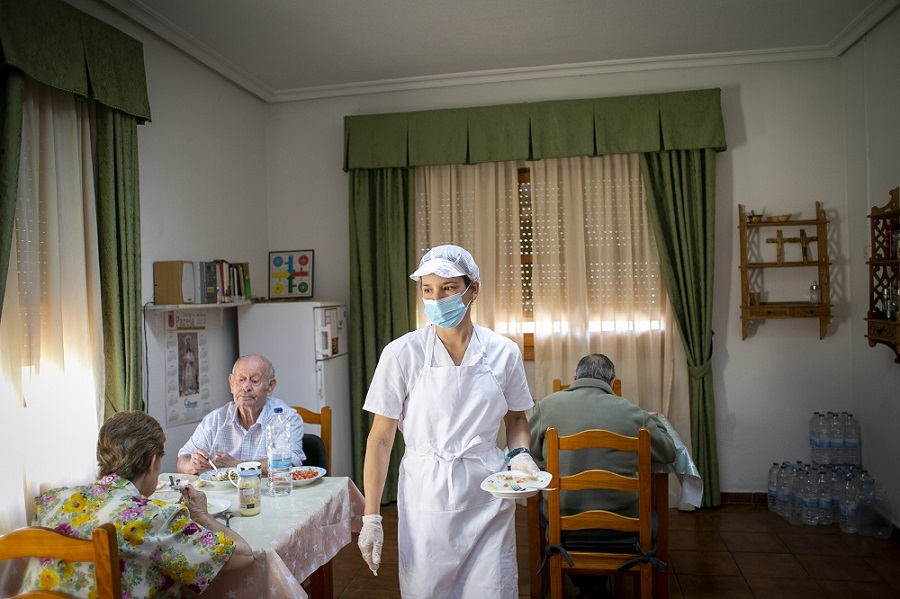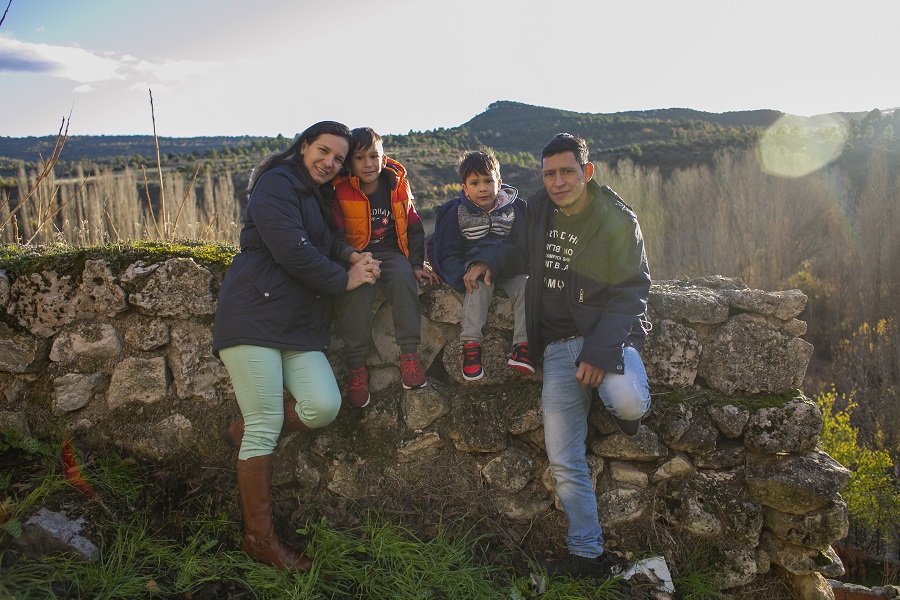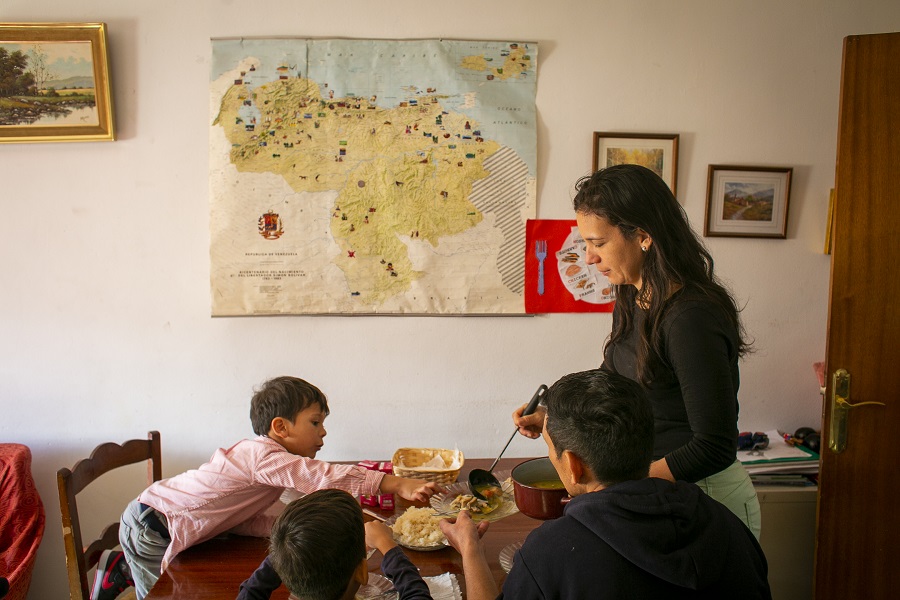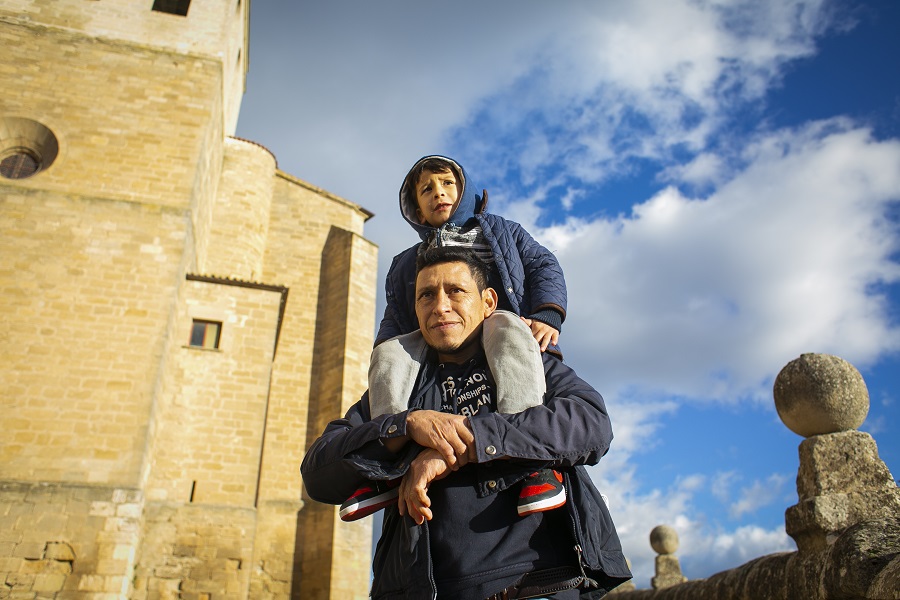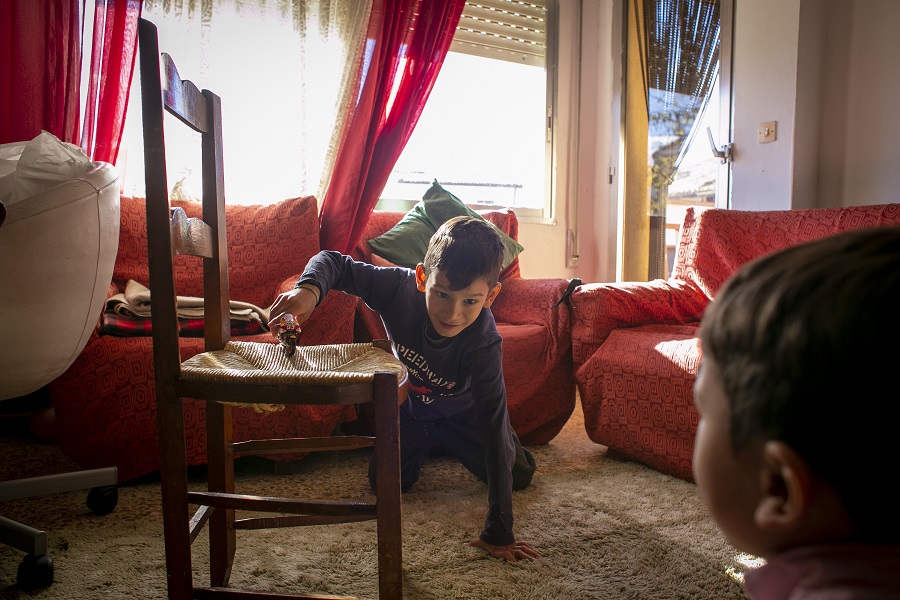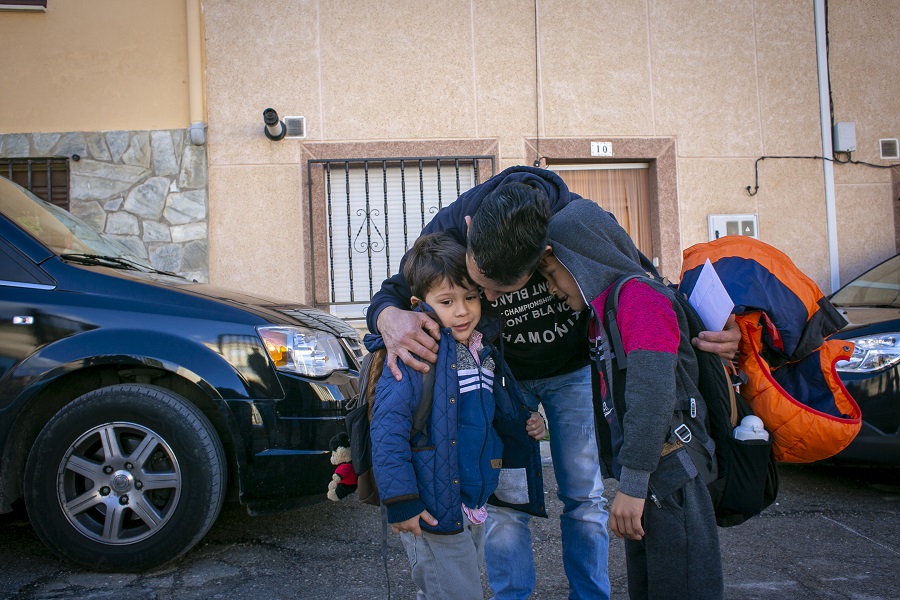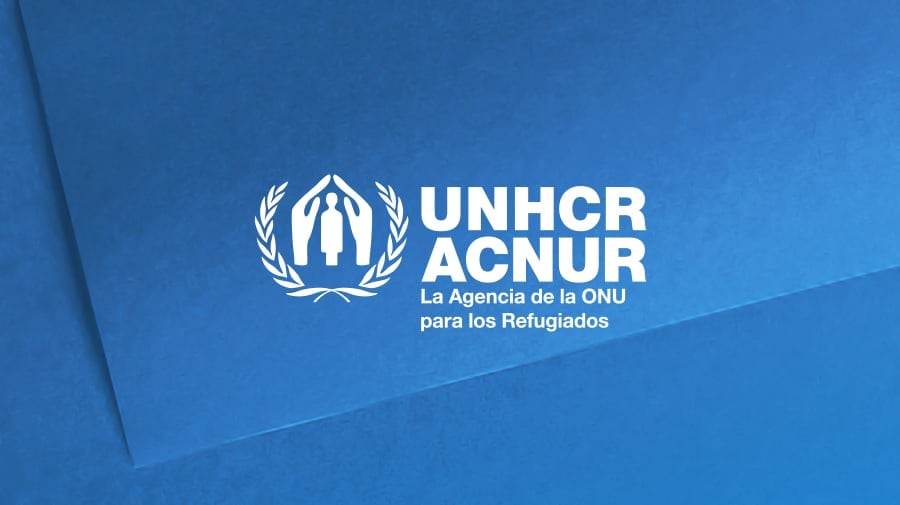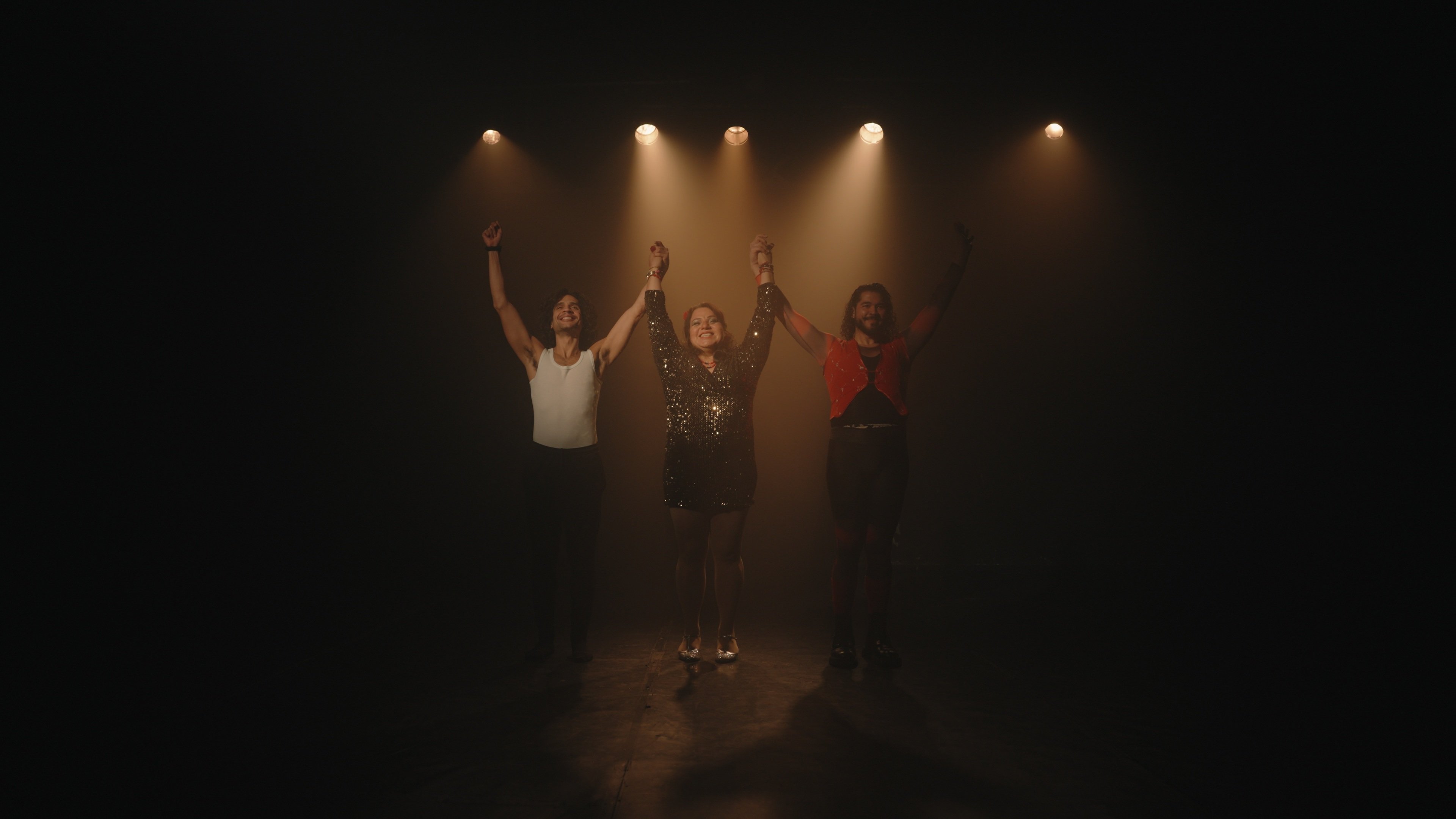Refugee families enrich and revitalize villages in rural Spain
Refugee families enrich and revitalize villages in rural Spain

The Márquez family lives in Pareja, Guadalajara, a rural area where they arrived thanks to the connection made by the Association Pueblos con Futuro and the Municipality of Pareja.
Angel grabs his coat before leaving the house. It is almost two o'clock in the afternoon and it is only 8 degrees outside. In the scarce 300 meters that separate his house from the school where his two children study, he does not cross paths with anyone.
We are in Pareja, a village located in the Ribera de la Alcarria, in Guadalajara, where, according to the last census of 2022, there are 463 inhabitants. Four of them are the Márquez family: Ángel, Zaida, Sebas and Santi, who arrived from Venezuela in June 2020.
Turning the corner of the village store, Angel sees from afar his six-year-old son Sebas, who comes out of school and runs into his father's arms. At the door, about five adults are also waiting for their children. "Angel, could you help me with something?" says one of his neighbors, and they chat while he waits for Santi, the youngest of the family, four years old, to come out.
The Márquez family landed in Spain in 2019, just before the pandemic broke out and confinement was imposed. Upon arriving in Madrid, the city came crashing down on them. They needed to find a home and a job, but also to get out of the big city. "We had heard that they were looking for people to repopulate villages, but we didn't know how to do it, we didn't have the contacts," recalls Zaida from the living room of her home, now in Pareja.
“We need to find places willing to host with cheaper housing than in the big cities and the possibility of stable employment.”
They searched the internet, asked around among the people they were beginning to meet in the city, "and one day Doris called us and for us it was a great emotion, like a miracle," recalls Ángel.
He is referring to Doris Castillo, founding partner of Pueblos con FuturoLink is external, an association that helps connect vulnerable families looking for homes and stable work in rural areas, with villages in empty Spain that need to mitigate their depopulation.
"The idea arises from the need to find employment for many migrants and refugees at risk of exclusion," says Doris. "We need to find places willing to welcome with cheaper housing [than in the big cities] and the possibility of stable work."
Since they started the activity, about three years ago, more than 20 families have settled in more than a dozen towns in Guadalajara, Cuenca, Zamora and Madrid. In addition to the personal and cultural wealth they bring, the arrival of these families has revitalized the municipalities, since thanks to them and their children, schools have been kept open and jobs have been filled, mainly in construction, care of the elderly, agriculture and livestock farming. Many refugee and migrant families have also taken over the management of the village bar, which for Doris "is fundamental because it gives a lot of life to the village".
But this program is not for everyone. The referral process begins with the commitments and offers of the municipalities on the one hand and, on the other, the cultural aspects, language, as well as the socio-labor background of the families. Pueblos con Futuro emphasizes the importance of prior preparation, of adjusting expectations in both directions and ensuring that refugees are clear about what it means to live in rural areas. "The selection process takes time. It's not a simple thing, because we really need to see that the families' life project is in line with village life and then we do a personalized follow-up of the integration process," explains Doris.
Ángel and Zaida lived in a rural area in their native Venezuela, in the State of Barinas. They had a farm of almost 40 hectares, with their house, vegetable garden and animals. Although they were both educated as teachers and dedicated themselves to teaching, but the land and cattle were the family's main livelihood.
But the difficult socio-political situation in Venezuela pushed them to leave the country. "We spent more than a year thinking about it and, in the end, we decided, especially for the children, because as a mother, you want to give them security and a future," explains Zaida. Once in Spain, they asked for asylum and the government has granted them a residence and work permit for humanitarian reasons due to the current situation in Venezuela.
The Márquez family was one of the pioneers in this program and has been in Pareja for almost three years. Ángel works on a farm in a nearby hamlet and Zaida at the Pareja Senior Housing, where she prepares and serves meals while attending to the needs of the seniors who reside there. "I really enjoy chatting with the elderly, because for me they are like a living book. They have a lot to tell and I have a lot to learn," she explains.
The mayor of Pareja, Javier del Río, has emphasized that the Márquez family has integrated very well and that they contribute to the future of the town. He values very much that, thanks to the presence of these foreign families, the number of students in the school has increased considerably, remarking that this program is a benefit for everyone.
Doris, also sees it clearly, "the town always improves, from the moment it is open-minded and open-hearted to welcome people who are not the same, who are from other places," explains Doris.
"We are very happy surrounded by nature, listening to the birds singing. The people here are very harmonious and have welcomed us with open arms, they have helped us whenever we have needed it," says Ángel. Zaida also agrees: "They love the children very much, they like the fact that there are children in the village. For them, it's like seeing life.
“Leaving one's life behind, a whole life, is very hard and, well, sometimes it hurts, but life goes on and you have to keep on going.”
In this family's home, Venezuela is always present: in a political map hanging on the living room wall, in the smell of meat and vegetable soup with rice coming from the kitchen, in the drawings that Ángel has painted of his farm, of his horses ... Over the fireplace hangs a cuatro, a stringed instrument that accompanies Venezuelan folk rhythms, with which Ángel composes songs dedicated to Venezuela, to nature, to love and with which he now also sings to the Alcarria and to Pareja, which he considers his second homeland. Sebas and Santi, sing duets of their father's compositions and play the cuatro and the maracas.
"Leaving Venezuela was very difficult. I left tears along the way," recalls Ángel, visibly moved. "Leaving one's life behind, a whole life, is very hard and, well, sometimes it hurts, but life goes on and you have to keep going."
"For me, Pareja means peace, tranquility and security. I don't know what will happen in the future, but what I want now is to continue living in Pareja," explains Zaida.


